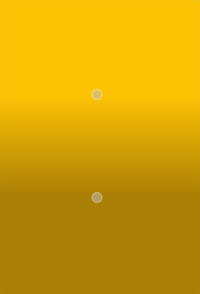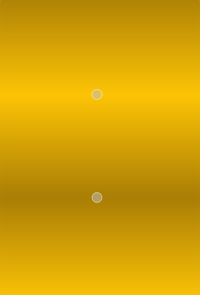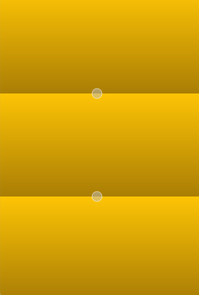| Home · All Classes · Modules |
The QLinearGradient class is used in combination with QBrush to specify a linear gradient brush. More...
Inherits QGradient.
The QLinearGradient class is used in combination with QBrush to specify a linear gradient brush.
Linear gradients interpolate colors between start and end points. Outside these points the gradient is either padded, reflected or repeated depending on the currently set spread method:
 |
 |
 |
| PadSpread (default) | ReflectSpread | RepeatSpread |
The colors in a gradient is defined using stop points of the QGradientStop type, i.e. a position and a color. Use the QGradient.setColorAt() or the QGradient.setStops() function to define the stop points. It is the gradient's complete set of stop points that describes how the gradient area should be filled. If no stop points have been specified, a gradient of black at 0 to white at 1 is used.
In addition to the functions inherited from QGradient, the QLinearGradient class provides the finalStop() function which returns the final stop point of the gradient, and the start() function returning the start point of the gradient.
Constructs a default linear gradient with interpolation area between (0, 0) and (1, 1).
See also QGradient.setColorAt(), setStart(), and setFinalStop().
Constructs a linear gradient with interpolation area between the given start point and finalStop.
Note: The expected parameter values are in pixels.
See also QGradient.setColorAt() and QGradient.setStops().
Constructs a linear gradient with interpolation area between (x1, y1) and (x2, y2).
Note: The expected parameter values are in pixels.
See also QGradient.setColorAt() and QGradient.setStops().
Returns the final stop point of this linear gradient in logical coordinates.
See also setFinalStop() and QGradient.stops().
Sets the final stop point of this linear gradient in logical coordinates to stop.
This function was introduced in Qt 4.2.
See also finalStop().
This is an overloaded function.
Sets the final stop point of this linear gradient in logical coordinates to x, y.
This function was introduced in Qt 4.2.
See also start().
Sets the start point of this linear gradient in logical coordinates to start.
This function was introduced in Qt 4.2.
See also start().
This is an overloaded function.
Sets the start point of this linear gradient in logical coordinates to x, y.
This function was introduced in Qt 4.2.
See also start().
Returns the start point of this linear gradient in logical coordinates.
See also setStart() and QGradient.stops().
| PyQt 4.12.1 for X11 | Copyright © Riverbank Computing Ltd and The Qt Company 2015 | Qt 4.8.7 |